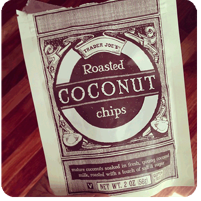 As Americans become more health conscious, food companies have had to come up with increasingly creative ways to keep people snacking. In fact, just last month we featured an article in the newsletter about how smaller packaging can lead people to eat more than they normally would. But for a growing number of consumers, fatty snacks like candy and potato chips are to be avoided no matter how they’re packaged. That’s why a number of niche brands have popped up offering seemingly healthy alternatives to the standard snack aisle.
As Americans become more health conscious, food companies have had to come up with increasingly creative ways to keep people snacking. In fact, just last month we featured an article in the newsletter about how smaller packaging can lead people to eat more than they normally would. But for a growing number of consumers, fatty snacks like candy and potato chips are to be avoided no matter how they’re packaged. That’s why a number of niche brands have popped up offering seemingly healthy alternatives to the standard snack aisle.
Foods like kale chips and seaweed sheets provide consumers with what marketers are calling “permissible indulgence.” While chocolate and Cheetos are seen as forbidden items, snacks made from vegetables don’t elicit the same feelings of guilt in many consumers. That’s why food companies rolled out 16 new seaweed-containing snacks in the first half of 2013, up from just three last year. Snacks featuring beans and legumes are on the rise as well, with 51 new brands hitting the shelves already this year. Looking at the industry as a whole, a recent study found that more than 71 percent of all snack foods on the market made at least one health claim on their packaging.
But just because these snacks claim to be good for you doesn’t mean that’s precisely the case. Like many packaged foods, reduced serving sizes on many “permissible” snacks skew the nutrition facts to make these items appear healthier. For instance, a serving of Annie Chun’s Roasted Seaweed Snacks clocks in at 30 calories but amounts to only 10 thin sheets of the stuff. Meanwhile, a one-ounce serving of Beanitos Nacho Cheese chips has 140 calories, seven grams of fat and 140 milligrams of sodium. That doesn’t make the black bean-based chip much healthier than a standard nacho cheese tortilla chip, which boasts 146 calories, seven grams of fat and 174 million grams of sodium. So while these niche veggie brands may be slightly better for the human body than other mass-produced foods, like all other snacks they are to be enjoyed in moderation.
Questions:
- What important principle should consumers remember in dealing with snack foods?
- Do serving sizes confuse consumers into thinking a product is low calorie?
Source: Anne Marie Chaker, “Do These Count as Vegetables?” The Wall Street Journal, September 25, 2013. Photo by Angie Six.
